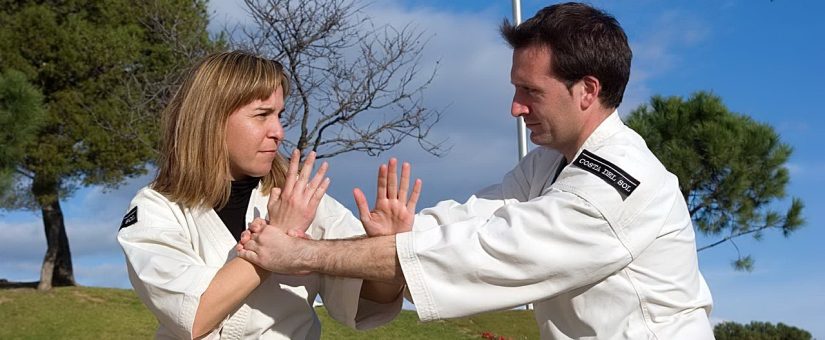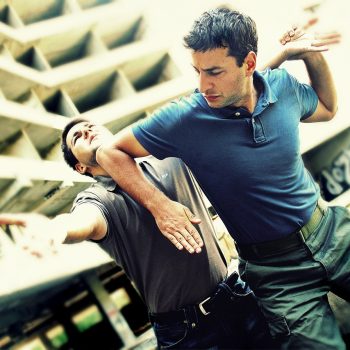
The Psychology of Self-Defense: Mindset Matters in Tough Situations
- On September 11, 2023
- 0 Comments
Self-defense is not merely about physical techniques or martial arts prowess. While mastering physical skills is undoubtedly essential, the psychology of self-defense plays an equally crucial role in effectively protecting oneself in challenging situations. In this article, we will delve into the intricate world of the psychological aspects of self-defense, exploring why mindset matters and how it can make all the difference when faced with threats or danger.
The Three Pillars of Self-Defense
Before delving into the psychology of self-defense, it’s important to understand the three primary pillars that make up a comprehensive self-defense strategy:
Awareness: Awareness is the foundation of self-defense. Being mindful of your surroundings, potential threats, and the people around you is the first step in avoiding dangerous situations. It gives you the opportunity to assess risks and make informed decisions.
Avoidance: Avoidance involves recognizing potential threats and taking proactive measures to steer clear of danger. This can include changing your route, avoiding poorly lit areas at night, or declining invitations to unfamiliar or uncomfortable situations.
Physical Techniques: While awareness and avoidance are crucial, physical techniques are the last line of defense when all else fails. These techniques may include strikes, escapes, and defensive maneuvers designed to protect yourself from harm.
Now, let’s explore the psychological aspects that underpin these pillars.
Mindset Matters: The Psychology of Self-Defense
1. Situational Awareness
Situational awareness is the foundation of self-defense psychology. It involves being attuned to your surroundings and recognizing potential threats before they escalate. This heightened awareness allows you to make quick decisions and take appropriate action. Developing situational awareness involves:
Observation: Pay attention to details, people’s body language, and unusual behavior in your environment.
Trust Your Instincts: If something feels off or makes you uncomfortable, trust your gut instincts. Your intuition can often alert you to danger before you consciously recognize it.
Avoid Distractions: In our digital age, it’s easy to get absorbed in smartphones or other distractions. Practice being present and attentive when in public spaces.
2. Fear Management
Fear is a natural response to danger, but how you manage that fear can significantly impact your ability to respond effectively. The psychology of fear in self-defense involves:
Recognizing Fear: Understand that fear is a normal response to danger, and it can heighten your senses and focus your attention.
Breathing and Calming Techniques: Learn techniques to control your breathing and calm your nerves. Deep, controlled breaths can help you stay composed under stress.
Visualizing Response: Mentally rehearsing how you might respond to different threats can help you feel more prepared and confident when faced with danger.
3. Assertiveness and Confidence
Confidence and assertiveness play a pivotal role in self-defense. An assertive mindset involves setting boundaries, communicating clearly, and demonstrating self-assuredness. Here’s how to cultivate assertiveness:
Set Clear Boundaries: Know your personal boundaries and communicate them assertively. This can deter potential attackers.
Practice Verbal Self-Defense: Develop the ability to assertively, but non-aggressively, respond to verbal threats or harassment.
Posture and Body Language: Maintain confident and open body language. Stand tall, make eye contact, and project confidence in your movements.
4. Decision-Making Under Pressure
In high-stress situations, decision-making can become challenging. The psychology of self-defense involves preparing your mind for these moments:
Response Plans: Develop response plans for various scenarios, so you have a mental framework to guide your actions.
Calm and Clarity: Practice maintaining a sense of calm and clarity under pressure. Panic can cloud your judgment.
Adaptability: Be flexible in your thinking and adapt to changing situations. Recognize that the best response may evolve as events unfold.
5. De-Escalation Techniques
De-escalation involves defusing tense situations before they turn violent. The psychology of de-escalation includes:
Verbal Communication: Learn effective de-escalation techniques through verbal communication. This includes active listening, empathy, and non-confrontational language.
Maintain Personal Space: Keep a safe distance from potential threats while attempting to de-escalate a situation.
Seek Assistance: If you feel a situation is escalating beyond your control, seek help from others or authorities.
Training the Mind for Self-Defense
Developing the right mindset for self-defense requires training and practice. Here are some steps to help cultivate the psychological aspects of self-defense:
Education: Educate yourself about self-defense principles, situational awareness, and threat recognition.
Scenario-Based Training: Participate in scenario-based training that simulates real-life situations. This helps you practice your decision-making skills under pressure.
Visualization: Engage in mental rehearsal by visualizing different self-defense scenarios and your responses to them.
Physical Training: Physical fitness and self-defense techniques can boost your confidence and physical capabilities.
Emotional Resilience: Develop emotional resilience through practices like meditation, mindfulness, or counseling to better handle fear and stress.
Conclusion
In the realm of self-defense, the right mindset can be your most powerful weapon. By cultivating situational awareness, managing fear, and embracing assertiveness, you can enhance your ability to protect yourself and respond effectively in tough situations. Remember that self-defense is not just about physical techniques; it’s about a holistic approach that encompasses the psychology of self-preservation. By training your mind as well as your body, you empower yourself to navigate the complexities of self-defense with confidence and resilience.

